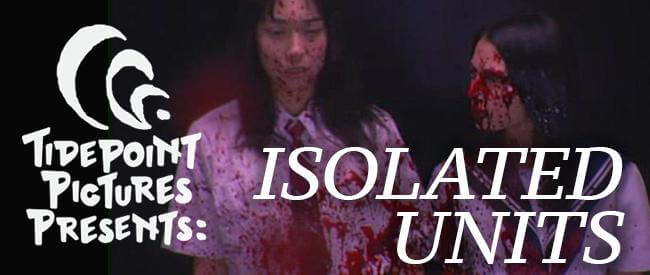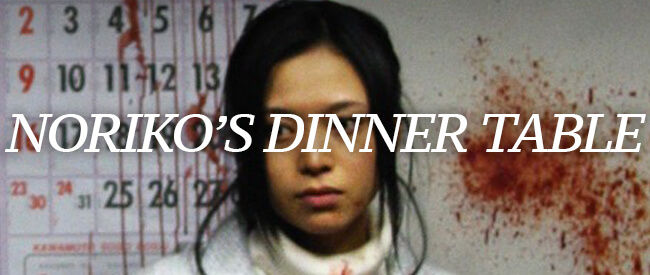
Sometimes one isn’t the loneliest number. Celebrating Tidepoint’s 20th anniversary, these films find isolation in crowds, in tandem, in public and in intimacy. They focus on the uneasy choice between trusting others you’ll never truly know, or alienation if others are necessary to truly know yourself.

SHADY
Dir. Ryohei Watanabe, 2012
Japan. 94 min.
In Japanese with English subtitles.
WEDNESDAY, NOVEMBER 2 – 10:00PM
SATURDAY, NOVEMBER 26 – 10:00PM
TUESDAY, NOVEMBER 29 – 7:30PM
A feature debut from Watanabe, SHADY lives up to its title, setting up a typical Japanese coming-of-age drama before sliding into something much darker. ‘Typical’ does disservice to the film’s first half – the friendship that blossoms between pudgy, shy Misa (nicknamed ‘Pooh’ by classmates) and bubbly, pretty Izumi has real intimacy and depth, but Watanabe, a screenwriter by trade, clearly knows, hits, and (more importantly) manipulates all the genre’s beats. When the tonal shift comes, it seems sudden, yet Watanabe’s carefully set the path all along.
Misa is initially confused as to why seemingly popular Izumi seeks out her friendship, only to learn Izumi’s looks have earned her the endless jealousy of all the other girls. Ostracized on opposite ends, the two find what they need in each other – joy for Misa, stability for Izumi. The nuance captured is all the more amazing as this is an acting first for both leads – Mimp*b, the pop singer playing Misa, also worked on the score. As the two girls become more deeply intertwined, tension mounts as small cracks grow into gaping voids.

NORIKO’S DINNER TABLE
Dir. Sion Sono, 2005
Japan. 159 min.
In Japanese with English subtitles.
SUNDAY, NOVEMBER 13 – 7:30PM
WEDNESDAY, NOVEMBER 23 – 10:00PM
SUNDAY, NOVEMBER 27 – 7:30PM
A prequel/parallel to 2001’s SUICIDE CLUB, NORIKO’S DINNER TABLE is as subdued and restrained as its predecessor was frentic and gory. And yet, despite a nearly three hour run time, NORIKO’S is the more compelling film – where SUICIDE CLUB was a disjointed mystery of mass suicide, NORIKO’S follows an entire family’s unraveling after eldest daughter Noriko runs away to Tokyo. In the city, Noriko joins online friend Kumiko and becomes part of her literal surrogate family. Kumiko runs a rent-a-relative business where people can hire family members for any need – a spouse to make dinner, children for walks in the park, an ex-girlfriend to wreak vengeance on. The chat room the girls met on is the same that encouraged the jumpers from SUICIDE CLUB. Uncertain whether Noriko was one of the jumpers (the film’s timeline is nonlinear and disjointed, told from several viewpoints), her younger sister Yuka follows her online footsteps and ends up joining the family rental business as well. Their father, a newspaper detective by trade, is blindsided by his daughters’ behavior and sets off to discover what happened and get his daughters back.
The concept of family, identity, and what either can mean tilts wildly – together in the cult-like rental group Noriko and her sister communicate more playing the role of hired ‘sisters’ than they ever spoke at home, but shed their former identities and lose themselves in each character they play, with no central ‘self’. Scenes of dramatic confrontation are immediately undercut by Kumiko criticizing the others’ ‘performance’, suggesting improvements for what was presented (diagetically and non-) as earnest emotion. Though SUICIDE CLUB put director Sono on the map, NORIKO’S DINNER TABLE expands themes the former only hinted at, while deepening the mystery at the core of both.
